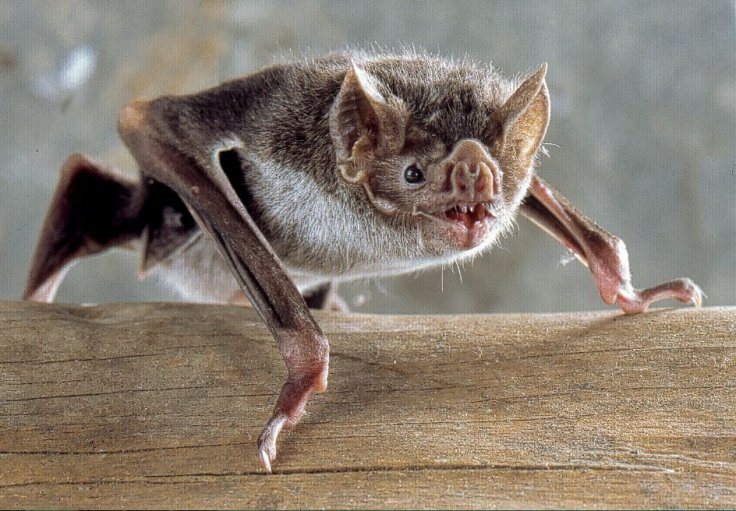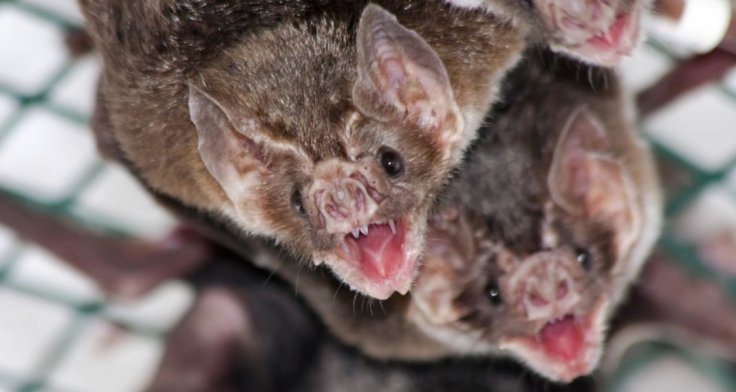Ever since the COVID-19 pandemic took over the world, one term has become a mainstay in the entire world's lexicon—social distancing. The irony, however, would be if the very creatures—bats—that have been accepted as the source of the disease followed the same if they were stricken will illness. Now, a new study has discovered that vampire bats choose to spend less time with other members of the community when they get sick!
The study published by the Oxford University Press found that sick vampire bats spent less time with other bats, which in turn leads to deceleration of the pace at which a disease can swiftly spread among the animals. The team involved had previously observed this behavior in laboratory conditions, and for the study, they employed a field experiment using sensors to confirm the occurrence in the wild as well.
"The sensors gave us an amazing new window into how the social behavior of these bats changed from hour to hour and even minute to minute during the course of the day and night, even while they are hidden in the darkness of a hollow tree," said Simon Ripperger, lead author of the study.
Examining the Role of Sickness in Sociability

For the study, the authors carried out a field experiment in order to ascertain the manner in which behavior during sickness can impact social relationships with time among the bats. Utilizing high-resolution proximity data, the scientists created a dynamic social network. Next, they captured 31 female adult vampire bats that were roosting within the hollow of a tree in Lamanai, Belize.
Lipopolysaccharide—the combination of a lipid and a polysaccharide that has a challenging effect on the immune system—was injected into a random half of the captured bats in order to simulate "sickness". Lipopolysaccharides or LPS are found in the cell walls of certain pathogenic bacteria. The remaining bats were injected with saline solution.
Over the course of the next three days, the team attached proximity sensors to the bats and released them into the hollow again. The changes in the associations between the 15 control bats and 16 "sick" bats were tracked in their natural conditions and habitats.
Sick? Distance Please!

The observations made by the authors were nothing short of fascinating. In comparison to the healthy control bats, the "sick" bats were found to have associations with fewer group members and spent lesser time with others. They also were seen to be more socially disconnected with their healthier counterparts, both through direct and indirect connections.
During the course of the treatment period—six hours—a "sick" bat interacted with four lesser group mates on an average. While a healthy bat had a 49 percent chance on average of association with the other 14 control bats, it has a chance of only 35 percent of associating with each of the 16 "sick" bats.
Also, during the duration of treatment, the "sick" bats spent 25 minutes lesser associating with each partner. However, the differences gradually reduced following the treatment period and when they slept or looked for food outside their roost. "We've gone from collecting data every day to every few seconds," concluded Ripperger.









